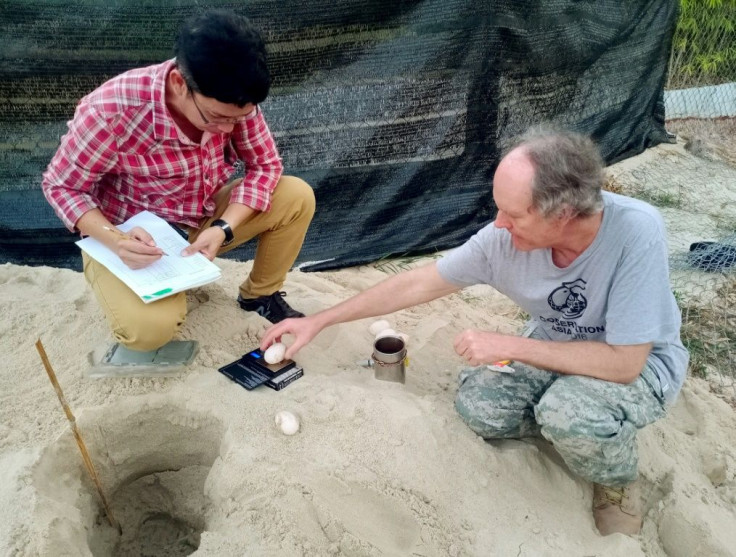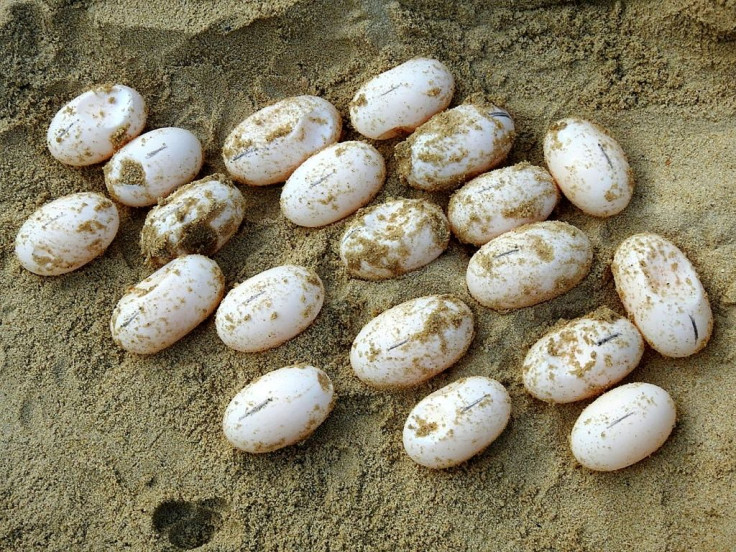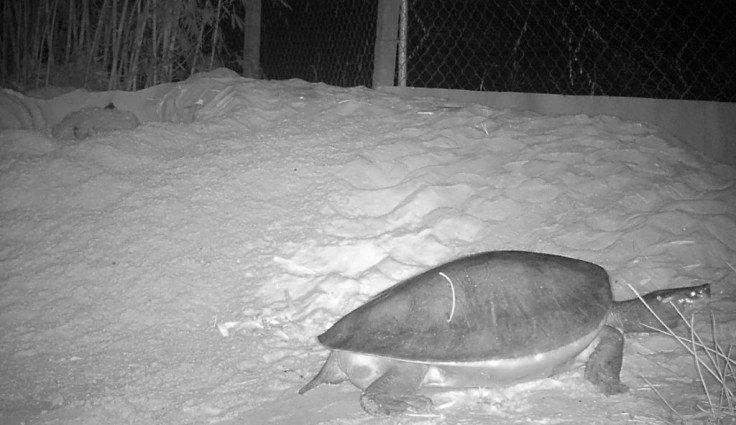Cambodia's Royal Turtle Lays Eggs In Captivity For First Time
An endangered turtle bred in captivity laid eggs for the first time in Cambodia, conservationists said this week, in a massive win for animal protection in the kingdom.
The animal was among five Royal Turtles -- once feared extinct in the country -- that laid more than 70 eggs.

Cambodia is home to several populations of endangered turtles, whose numbers have dwindled due to demand for them in Vietnam and China as delicacies and for use in traditional medicine.
Royal Turtles, formally classified as Southern River Terrapins, were pushed to the brink of extinction by hunting and sand mining, which destroys the banks where they lay their eggs.

The damage was so severe that in 2000 they were feared wiped out in Cambodia, before nests were found and a careful conservation effort began.
On Tuesday the Wildlife Conservation Society (WCS) announced that four Royal Turtles bred in captivity -- and one that was handed to its conservation centre in Cambodia's southwestern Koh Kong province -- successfully laid 71 eggs.

"It's the first time that the captive female Royal Turtles have ever laid eggs since they were head-started at the centre in 2006," said Som Sitha, a conservation project manager with the WCS.
"The team will make artificial nests for incubation purposes or leave them as they are."
Given the rarity of the species in the wild, the successful egg laying is considered a massive win for Cambodia.
"We anticipate soon being able to produce large numbers of Royal Turtles in captivity and releasing them back into the wild," said the WCS's Steven Platt.
Since conservation efforts started, scores of Royal Turtles have been released back into the wild.
These come from eggs laid in the wild and taken into captivity, to protect them from the dangers which threaten the species' numbers.
Koh Kong Reptile Conservation Centre -- the kingdom's only dedicated turtle conservation facility -- currently holds 192 Royal Turtles, and plans to release 50 of them this year.
© Copyright AFP 2024. All rights reserved.




















